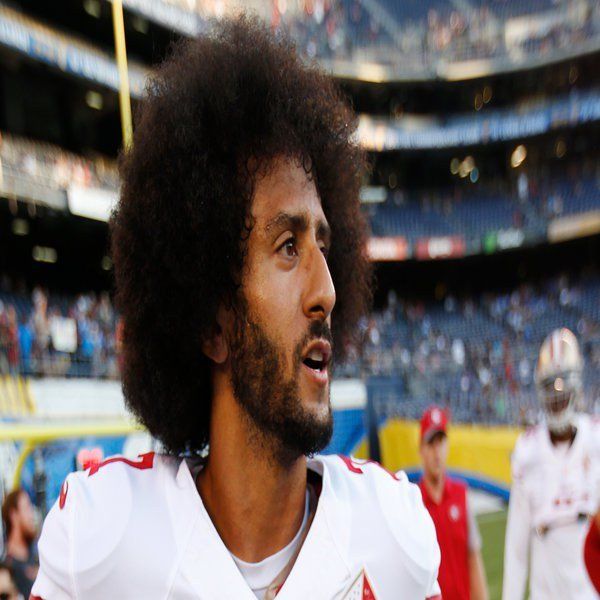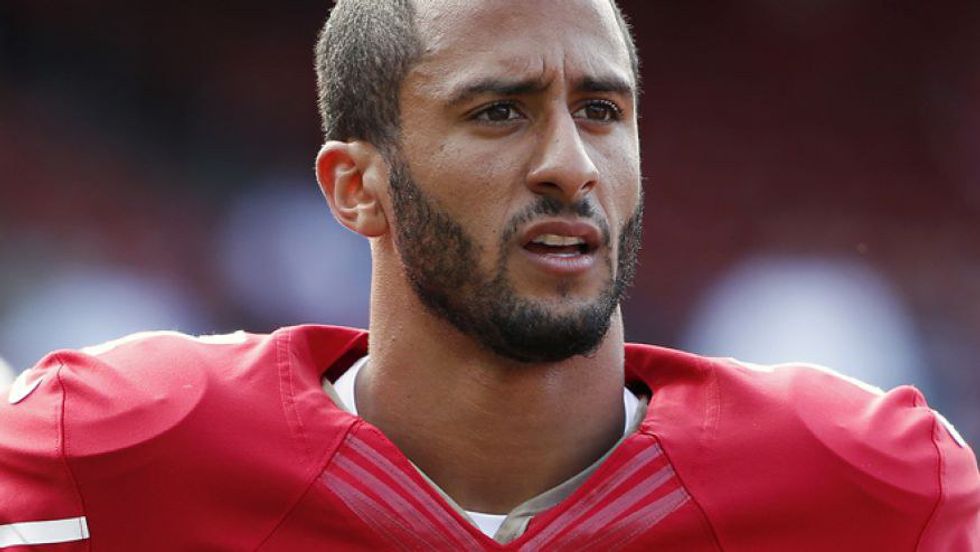I care about football slightly less than I care about the mating habits of spotted slugs (slugs, at least, are part of an ecosystem and somewhat contribute to their slug societies). So when I first heard the name “Colin Kaepernick,” it didn’t ring any bells. In this decadent age, though, news spreads so fast it makes wildfire seem slow, and I managed to catch up with the latest NFL scandal pretty quickly.
Before I dive into discourse about what I consider quite the remarkable statement in today’s day and age, let me give you a little background on myself: I’m a white, cisgender gay woman in her early twenties. I attend a well-off college, have always had food on the table, and consider myself to be very politically inclined.
In a country as violently, obnoxiously nationalistic at the U.S. (where we force schoolchildren as young as six to repeat the pledge like zombies every day), even a slight hesitation to partake in something like the anthem will have repercussions. From the first grade, we are fed the narrative that America is the greatest country on Earth, that racism and sexism are over, and that we’ve always been the good guys in every war we’ve ever fought. It’s very difficult to escape this mindset, as it’s so ingrained into our psyches. I’ve been lucky enough to both question what I’ve been taught and attend a higher learning institution; therefore, I no longer believe any of the aforementioned statements.
What Kaepernick did was very brave and very necessary. America has been idealized for far too long, and it’s time that people began peeling back the gilded surface and really looking at civil issues. He explains:
”This country stands for freedom, liberty, justice for all — and it's not happening for all right now. This is because I'm seeing things happen to people that don't have a voice, people that don't have a platform to talk and have their voices heard and effect change. "So I'm in a position where I can do that, and I'm going to do that for people that can’t."
He cites police brutality as one of his reasons for sitting, as well as mentioning both presidential candidates’ racist comments and histories. "I am not going to stand up to show pride in a flag for a country that oppresses black people and people of color,” he further extrapolates.
In 2015, more than 100 unarmed black people were killed by police; they are shot at 2.5 times the rate of white people ("Police Killed at Least 346 Black People in the U.S. in 2015." Mapping Police Violence. N.p., n.d. Web. 31 Aug. 2016). Police violence has become epidemic in this country—people are being slaughtered on the streets while we are taught that there is liberty and justice for all. Kaepernick isn’t spitting on the troops when he sits down for the national anthem—he’s drawing attention to the hypocrisy and unfairness of it. If you’re getting so defensive about it, think about the privileges you have and why you feel an antiquated ritual is more important than the current civil issues we have.
Colin Kaepernick is far more enlightened than the average civilian, probably even more so than you or I. Instead of concentrating on how disrespectful you believe his actions to be, perhaps listen to his reasons for taking him. It only takes one person to make a change.






















